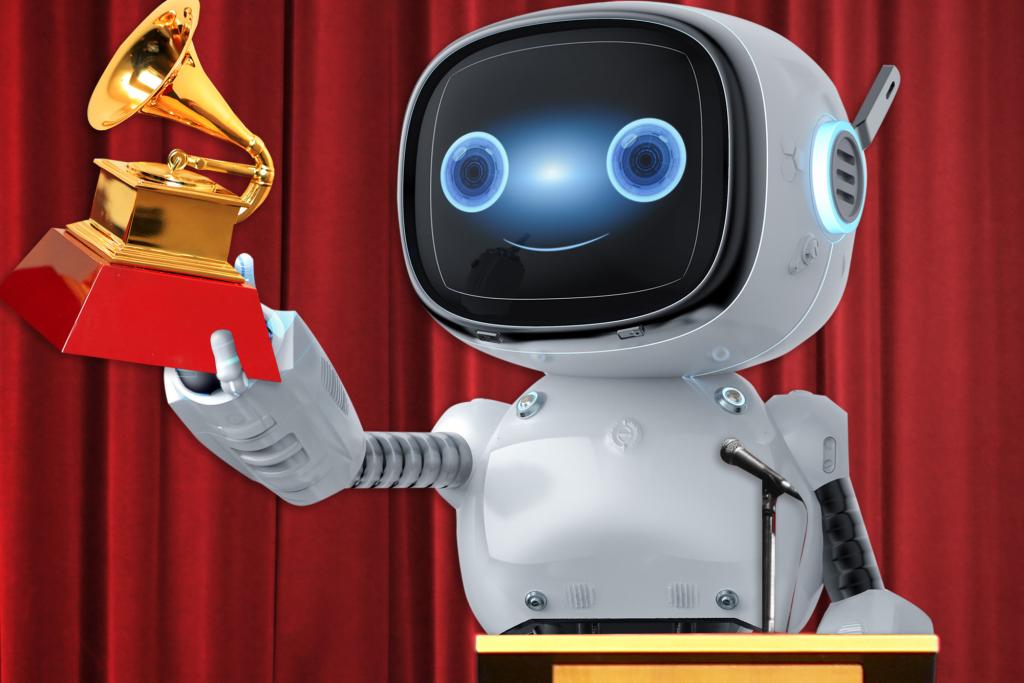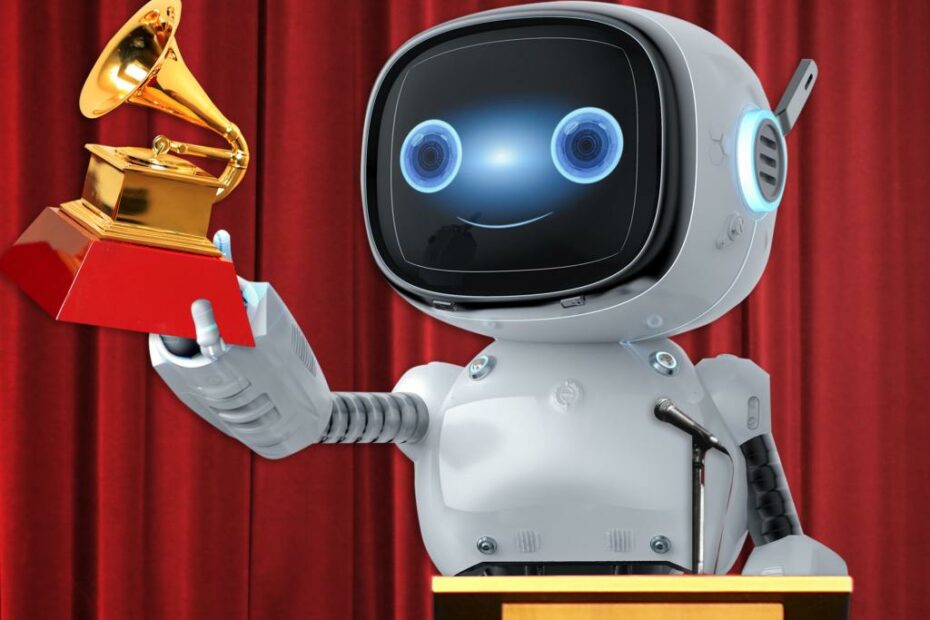Could a robot win a Grammy? AI music is eligible — sort of
Artificial intelligence-generated music will now be eligible for Grammy Awards, according to the Recording Academy. In a recent announcement, the Academy stated that entries incorporating AI would be allowed as long as there is a significant human component involved. The guidelines for the 66th annual Grammy Awards, scheduled for February 4, 2024, emphasize that only human creators are eligible for consideration, nomination, or winning a Grammy Award. The regulations specifically mention that AI work without human authorship is not permitted, but elements of AI material are acceptable.
This update comes at a time when AI-generated music and deepfake tracks are becoming more prevalent. The music industry has recently witnessed instances where AI and vocal deepfakes have caused controversy. Two-time Grammy winner David Guetta surprised fans with an Eminem track that was never actually recorded by the Real Slim Shady. Furthermore, a fake song featuring Drake and The Weeknd, titled “Heart on My Sleeve,” went viral and faced demands for removal due to copyright infringement. The occurrence prompted Universal Music Group to request that streaming platforms like Spotify and Apple Music block AI software companies from using their songs for training AI technology.
While some artists, like Sir Paul McCartney, are exploring the use of generative AI in their work, others approach the technology with caution. McCartney discussed his plans for a “final Beatles record” that would involve AI and “Lord of the Rings” director Peter Jackson. He revealed that AI allowed them to isolate John Lennon’s voice from a cassette tape, enabling them to mix the record as they desired. On the other hand, Thomas Bangalter, one of the members of Daft Punk, shared a different perspective. He stated that the duo always prioritized the side of humanity over technology and sought to use machines to express emotions that only humans could feel.
As AI continues to impact various fields, including music and photography, its role in creative expression remains a topic of debate. While some believe that computer-generated melodies could rival today’s hits, others argue that there are certain elements that machines cannot capture. The decision by the Recording Academy to allow AI-generated music at the Grammy Awards reflects the growing presence and influence of AI in the music industry.
FAQs:
Q: What changes have been announced for the Grammy Awards?
A: The Recording Academy has announced that artificial intelligence-generated music will be eligible for Grammy Awards, provided there is a significant human component involved.
Q: What are the guidelines for eligibility?
A: The guidelines state that only human creators are eligible for consideration, nomination, or winning a Grammy Award. AI work without human authorship is not allowed, but elements of AI material are acceptable.
Q: Why have these changes been made?
A: The rise of AI-generated music and deepfake tracks prompted the Recording Academy to address their inclusion in the Grammy Awards. By introducing guidelines that allow for AI elements alongside human creativity, the Academy aims to adapt to the evolving landscape of the music industry.
Q: How has AI impacted the music industry?
A: AI and vocal deepfakes have caused controversy in the music industry, with instances of artists using AI to recreate songs featuring deceased musicians or to imitate popular artists. The rise of AI-generated music has prompted discussions around copyright infringement and the role of AI in creative expression.
Q: How do artists feel about AI in music?
A: Artists hold varying perspectives on the use of AI in music. Some, like Sir Paul McCartney, embrace the technology and its capabilities in enhancing creative expression. Others, such as Thomas Bangalter from Daft Punk, prioritize the role of humanity in music and view AI as limited in its ability to convey certain emotions.

Can a Robot Secure a Grammy? AI-Generated Music is Potentially Eligible
Artificial intelligence-generated music will now have the opportunity to be considered for Grammy Awards, thanks to a recent announcement by the Recording Academy. However, there is a caveat. The guidelines for the 66th annual Grammy Awards, scheduled for February 4, 2024, state that only music with a “meaningful” and “relevant” human component will be eligible. The regulations specifically prevent AI work without “human authorship” from entering the competition, but allow for the inclusion of “elements of AI material.” This decision comes as AI-generated music and deepfake tracks have been making waves in the industry.
The music industry has already witnessed the impact of AI and vocal deepfakes. Fans were astonished this year when two-time Grammy winner David Guetta released a track featuring Eminem, despite Eminem never actually recording it. Another instance involved a viral fake song by Drake and The Weeknd called “Heart on My Sleeve,” which led to Universal Music Group facing demands for its removal due to copyright infringement. This incident prompted discussion about the importance of supporting artists and human creative expression, rather than perpetuating the rise of deepfakes and fraud.
Universal Music Group reportedly took action by requesting streaming platforms like Spotify and Apple Music to block AI software companies from using the label’s songs for training their technology, due to the increasing prevalence of deepfake vocals. As some artists explore the use of generative AI in their work, others remain cautious about this advanced technology.
Sir Paul McCartney recently shared his plans for a “final Beatles record,” with the assistance of AI and “Lord of the Rings” director Peter Jackson. McCartney praised AI for its ability to separate John Lennon’s vocals from a low-quality cassette recording and create a pure version of his voice. He believes AI has great potential for enhancing the creative process. However, not all musicians share this sentiment. Thomas Bangalter, one of the members of electronic duo Daft Punk, emphasized their preference for humanity over technology, stating that they used machines to express emotions that machines themselves cannot feel.
It is clear that AI is having a significant impact on the music industry, as well as other creative fields such as photography. As the popularity of AI models like ChatGPT continues to soar and generative AI becomes increasingly prominent, the debate surrounding the role of technology and human creativity will undoubtedly continue.
